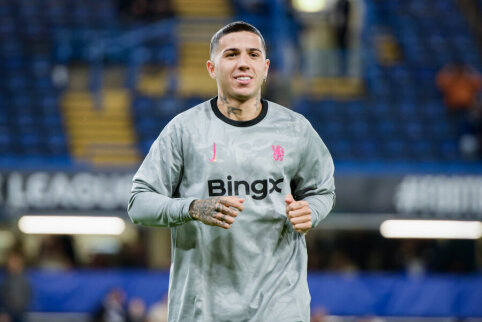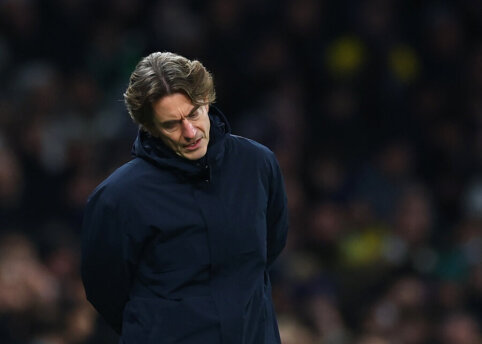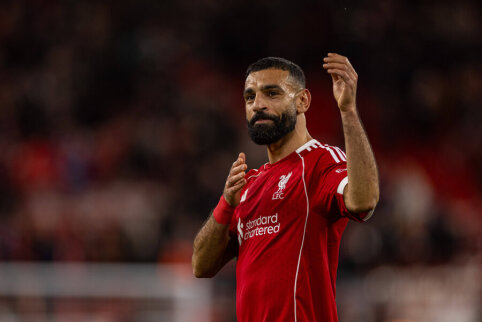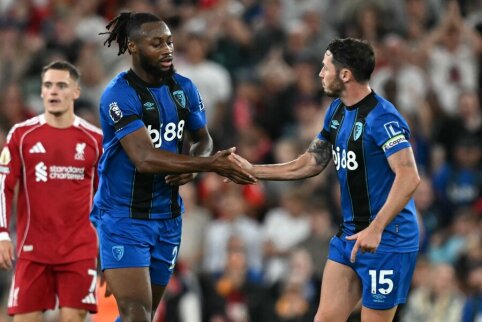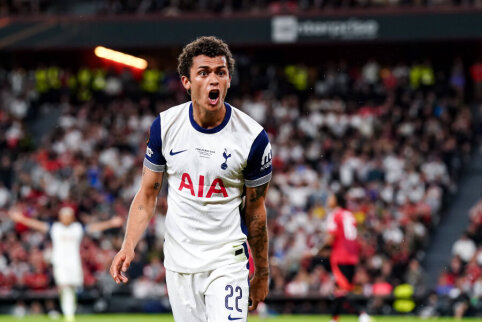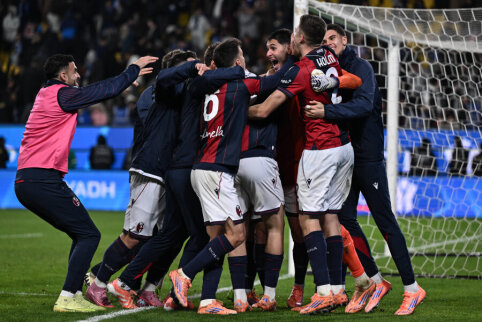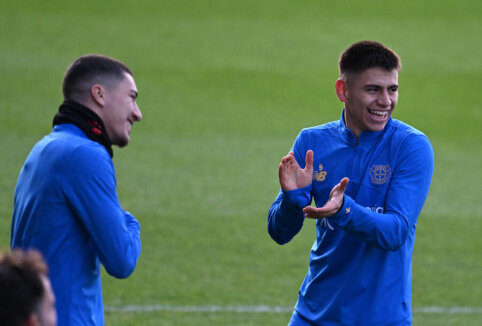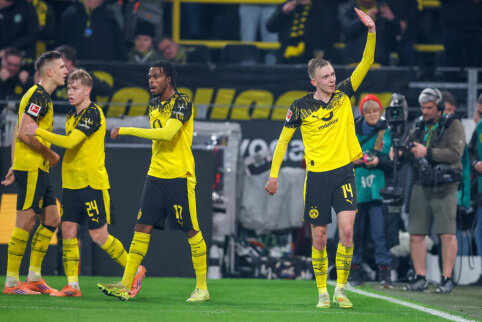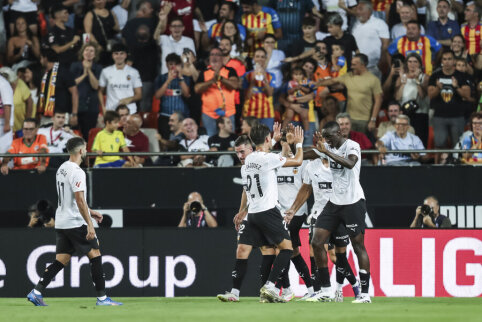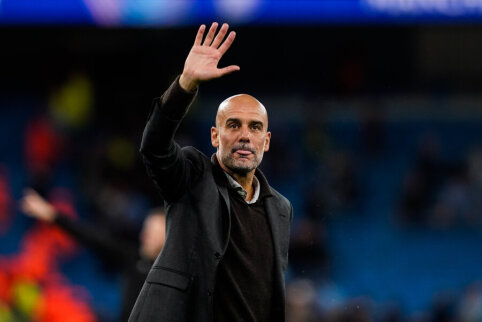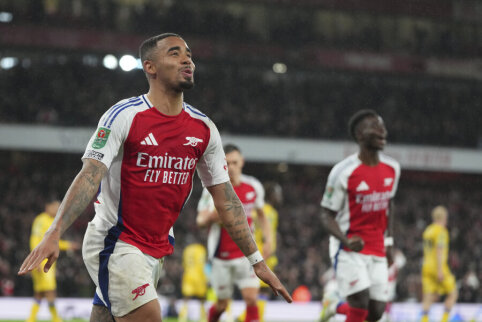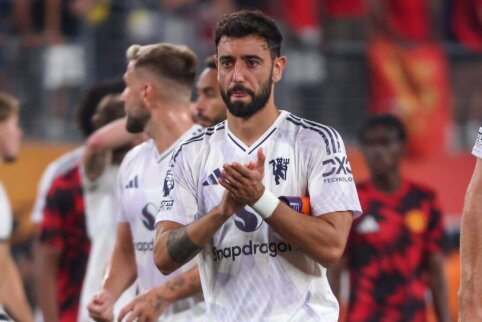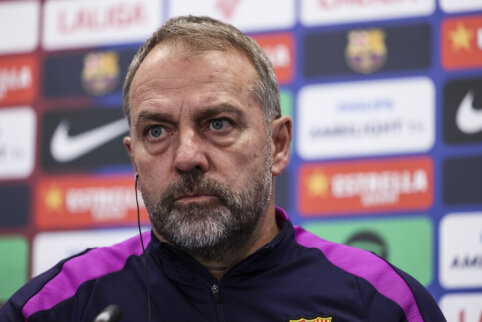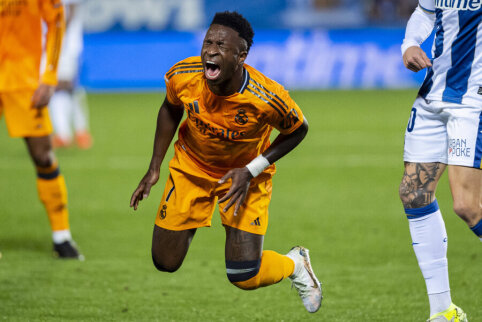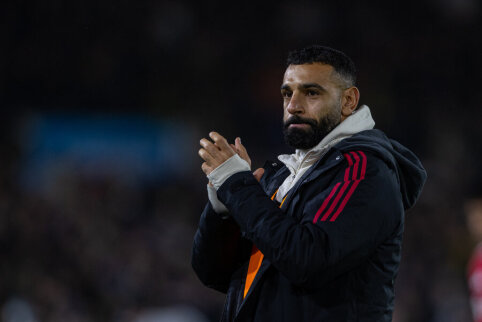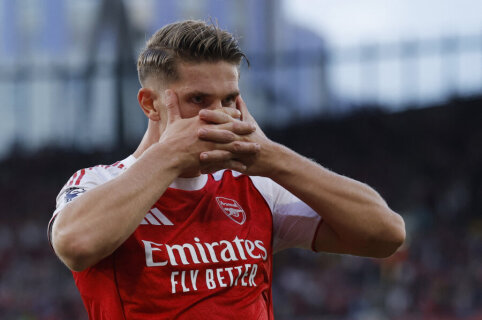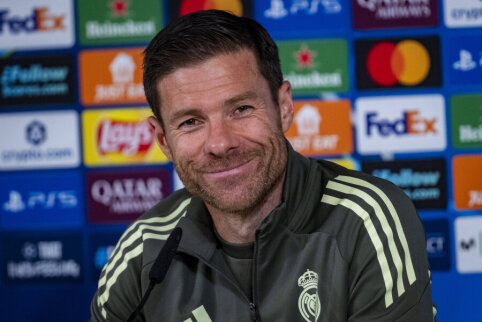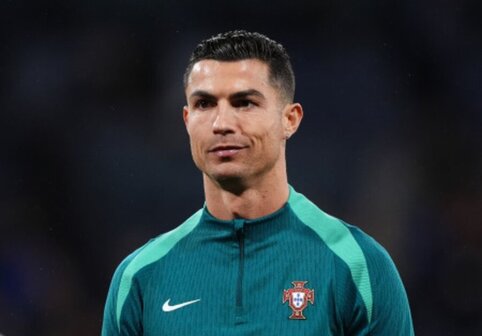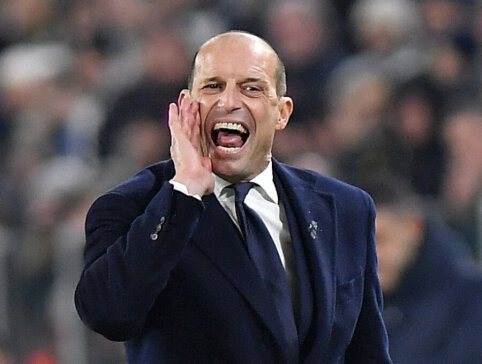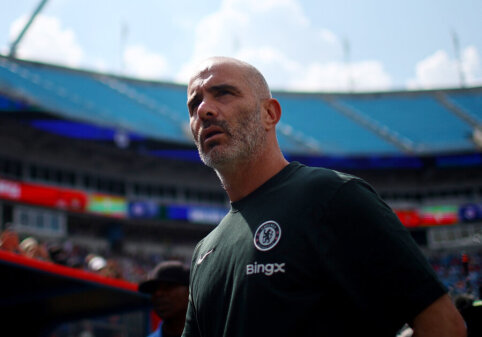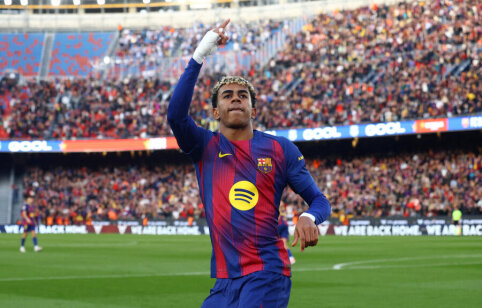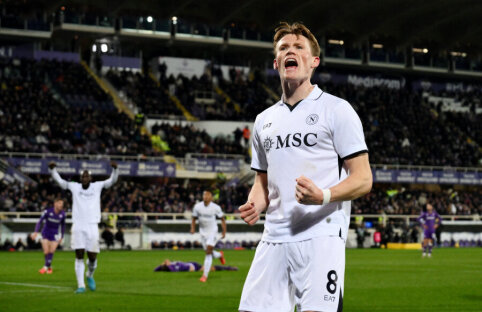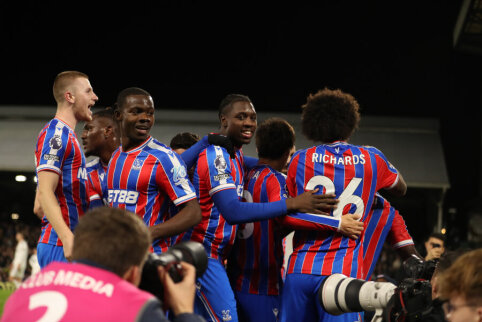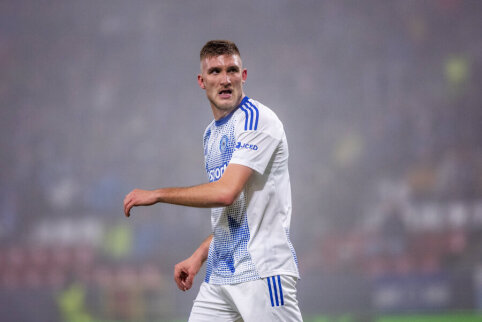 © EuroFootball.com
© EuroFootball.com
In the column "Tribūna", most likely inspired by the attention received from articles related to representatives of the other gender, a visitor of EuroFootball.com, Julija, sends a story about one of her favorite players, John Terry, the captain of London's "Chelsea" club and the new captain of the England national team.
Reminder: you can send your articles to [email protected]
His coach calls him the best center-back in the world, boldly claiming that this is definitely not a minority opinion. John Terry is now 25 years old and he grew up very quickly. Ten years ago, he was a defender. Six years ago, his future at Chelsea was uncertain. Four years ago, he was getting into fights in the streets and bars, risking getting into jail. And then he realized something important: he had the opportunity to become one of the best English footballers, perhaps even the best defender after the universally recognized Bobby Moore, England's captain who helped them win the World Cup in 1966.
"I don't want any points after J and T!"
John George Terry was born on December 7, 1980, in Barking, East London. His earliest memories of football involve watching his father play in a Sunday league when he was three years old and eagerly waiting for the ball to come his way so he could kick it. While Terry's father never became a professional, both his sons achieved what they wanted (Paul Terry, two years older, plays for "Yeovil Town" in the Coca-Cola Championship).
John Terry (sometimes shortened to JT) comes from a family closely connected with another footballer: John's sister married Paul Konchesky's brother, and Paul married the sister of this player.
However, there are no more girls in the Konchesky family, so John found his partner through friends. Toni Poole has been friends with the footballer since their youth team days, and on May 18th of this year, the couple welcomed twins: a girl named Summer Rose and a boy named Georgie John. As the young father himself said: "Twins are a serious matter. It's time to get serious."
And getting serious he did. Starting to earn significant money, John simply enjoyed his youth: luxurious clothes, cars, constant parties, and his greatest passion - designer watches. However, following the advice of older players and his agent, he began to take his earnings more seriously. "Growing money was not something I could be proud of. My father worked as a loader in construction and expenses were a painful subject in our family. I am happy that now I can give my parents what they deserve. I will do everything possible to ensure that my family never lacks anything and I will do everything possible for that." A good proof of this is his wedding planned for next year in June, which is expected to cost around £250,000...
From the "West Ham" youth team to a contract with "Chelsea"
John was ten years old when he caught the attention of the coaches as a player. The young talent was called to train with London's "West Ham" club, offered to play in the youth team. Players like P. Konchesky, Ledley King, Bobby Zamora also grew here... However, after four years he moved to "Chelsea", where he only trained a couple of times a week and played only on Sundays.
JT's father was a defender, but he and his brother enjoyed playing in the midfield. Once, while playing for the "Chelsea" youth team, coach B. Dale pushed him up to play in the back during one match, as several players were sick before the game and positions needed to be changed urgently. The team won 3-0, and Terry was named the best player of the match.
"I never wanted to be a defender - kids always want to play up front and score goals. But the feeling of not letting in a single goal during a match is just as indescribably pleasant as scoring one." In the next match, playing as a defender, John was once again declared the best player and never played as goalkeeper again. "I am extremely grateful to B. Dale," Terry said after those matches.
At sixteen, JT dropped out of school and dedicated himself to playing for the "Chelsea" youth team. However, fitting in was not easy for him: in his youth, Terry was short and chubby, so the club hesitated to sign a player who might not grow taller and who so badly wanted to play as a defender. However, everything changed within one summer. After a year, sixteen-year-old John signed a contract, earning £250 per week, and he became one of the highest-paid players in his team. A year later, his pay had already reached £1,000.
His father strongly disagreed with this contract. The whole Terry family was known for their loyalty to the "Man Utd" team. Even John was no exception in his childhood. "As a child, you want to support a team that constantly wins. However, after my first day at Chelsea, I realized that I wanted to stay here, although "Man Utd" is still very close to me." Sir Alex Ferguson, knowing about the boy's passion, even reserved a spot for him in his team. One day he invited the entire Terry family to an important club match, personally introduced them to the then English stars, took a photo with the Premier League trophy... "It was very difficult for my father to understand what I intended to do by staying at Chelsea, but I managed to convince him that it was the right decision."
Player and captain number 26
John Terry made his debut in the main team in November 1998, replacing D. Petersen. He was included in the starting lineup at the beginning of the following year, for the FA Cup performance. Although in the 1998/1999 season JT played only a part of the matches, he did enough to earn the Young Player of the Year award.
In 2000, Terry was loaned to the "Nottingham Forest" team. Although the coach's excuse that it would benefit the player, as he would gain more experience playing in the main lineup, sounded logical, John was very disappointed. When he returned, he did everything to earn the trust of the coach. And he succeeded: within six months, Claudio Ranieri brought him in to replace the injured Frank Leboeuf, who never fought for his place again.
By 2002, JT's career hung by a thread. Due to a fight at one of London's clubs, he and his teammate J. Morris, along with "Wimbledon" defender D. Byrne, ended up in court, facing the threat of prison. "Realizing my mistake, I cried and regretted more than once or twice," he remembered. Because of these allegations, John Terry missed the 2002 World Cup and the England Football Federation severely limited his playing time. But all the accused were acquitted and now openly admit that they are trying to forget this incident.
John's dedication and inspiring performance in the 2003/2004 season led Claudio Ranieri to appoint him as acting captain to replace the departed Marcel Desailly, who now has nothing but praise for this young player: "Terry - a future 'Chelsea' legend." In the following season, JT scored eight goals and was voted Player of the Year by his colleagues. "It's amazing when people appreciate you, especially those you are constantly with, many of whom are your competitors." In the same year, J.Terry also made it onto the European dream team selected by the French newspaper L'Equipe.
In 2005, Terry received a shower of real awards: in September, 40 countries from around the world voted for the World XI - by entering it, John gained the reputation of a solid defender and an excellent leader on the field. He was also named the best UEFA defender, when not only defending the team's goal selflessly, but also scored a total of four goals, including the decisive one against Barcelona. In addition, surpassing Frank Lampard, Steven Gerrard, Andy Johnson, and the 2004 winner Thierry Henry, JT was awarded the Professional Sports Journalists' Player of the Year award. Terry is the first "Chelsea" player to receive this award, as well as the first defender since P. McGrath (1993), and the first Englishman since Teddy Sheringham (2001).
When Jose Mourinho arrived at the club, Terry sought to impress the new coach, famous for his dramatic decisions. It was then that he became the official captain, whose contribution to Chelsea's success in the main English league for two consecutive years after a fifty-year break is undeniably significant. His influence and organization greatly contributed to the 2004/2005 season, where very few goals were conceded to Petr Cech. Mourinho relies on Terry and uses him as a mediator between the coach and the team, entrusting him with many responsibilities off the field.
"I care about my performance with the national team, but my main goal is to continue to dominate English football and help the 'Chelsea' club win as many titles as it deserves." Along with F. Lampard, Claude Makelele, and P. Cech, he is considered the backbone of "Chelsea." His excellent ball control, both in the air and on the ground, confidence in his abilities, and the knowledge that opponents will always have to face one of the best English players at the goal, have turned John into a stone around which the team's success is built.
When JT was asked if he could imagine leaving the team, he immediately responded: "Never. I firmly sit in 'Chelsea.' This club is just right for me. I am very loyal - there are not many players who start and end their careers in the same club in this day and age. Everything is moving in the right direction, and I can't imagine it could be worse. But, although I am the captain, the coach clearly told me that if I lose form - I will be on the bench."
But now, having signed a new contract, he is the highest-paid Englishman in the Premier League and has no intention of leaving. Especially not being kicked out. He aims to be the best, which is why he chose the number 26 - one digit higher than the "Chelsea" legend Gianfranco Zola, who played with the number 25 jersey.
Player and captain number 6
John Terry made his debut in the England national team relatively late. Only after firmly establishing himself in the "Chelsea" defense did he play his first international match with the Serbia and Montenegro team and scored his first goal in 2006 during a friendly match against Hungary (which England won 3-1).
Despite missing the opening match against France, Terry was one of the best players of Euro 2004, and just six days after the sensational loss to Portugal, JT became the only Englishman to make it into the Championship Team.
And although England finished this year's World Cup in the quarterfinals, in the round of 16 match against Ecuador, John was named the best player of the match, allowing only three shots along with R. Ferdinand to the South Americans' goal and saving P. Robinson from any more dangerous situations.
After this championship, the England national team immediately changed. Not only did coach Sven-Goran Eriksson leave, but the biggest surprise was the resignation of captain David Beckham. So one of the first tasks for the new coach, Steve McClaren, was to find a player worthy of the captain's armband. By defeating the main rivals S. Gerrard and Gary Neville, John Terry became the captain.
At first, he repeated that if he did not become captain, he would not be disappointed and would give all his energy to defense and try to perform as well as possible. After some time, he changed his mind: "I desperately want this. It's my childhood dream. I can't say much more about it. It depends on McClaren; he'll make the decision. He's been with the England national team for a long time and knows all the players well."
The decision was made. And it's unclear what the coach really considered: JT's captaincy experience (not only with "Chelsea" but also with the England U-21 team in 2001/2002), or the praise from the team's defender O. Hargreaves ("When I trained with JT for the first time (in the U-21 team), I thought that one day he would be a great national team captain. When you see what he did for 'Chelsea,' you are convinced that he is the ideal captain"), or many other opinions. Terry promises to keep his captaincy post until he retires, and many of his fans fully believe in it.
"One day I would like to be as good a defender as Paolo Maldini"
England's captain in 1975/1976 has said: "Even as a child, he was an absolute leader. An exemplary leader." Many Britons probably like the idea of Terry: a young, talented, fearless, and gifted Englishman. But JT earns praise and rewards not only in his country's arenas. He is simply likable to people.
John's personal qualities - reliability, sincerity, strength - complement his abilities on the field: insane bravery, impeccable teamwork, the ability to play even after suffering an injury, the ability to score decisive goals. And he is undoubtedly one of the best strikers in modern football.
J.Terry returns the loyalty and money his fans give him: he gives them passion, genuine joy in victories, and a bitter taste of defeat, a faith that never wavers, that the game is the most important thing in his life, and this thing is worth everything a footballer can give to it. "The coach taught me to hate losing. Not only that, now I don't like draws either."
He has that great value that is so hard to earn: he is loved and respected by other players and fans of other teams. "I like being a captain - a bit of a joker, helping the guys both on the field and beyond. On the field, I am very talkative - I say everything the player needs to hear, no matter who he is. This has been stuck in me since childhood." Terry is unique in his transformation from a bullied schoolboy into a professional footballer right in the same home environment and this meant a lot to him when "Chelsea" started buying more and more foreign players.
"JT is an amazing leader. He never drops his performance level below average. Sometimes he stumbles, but his level is always remarkably high." (A. Mullary)
